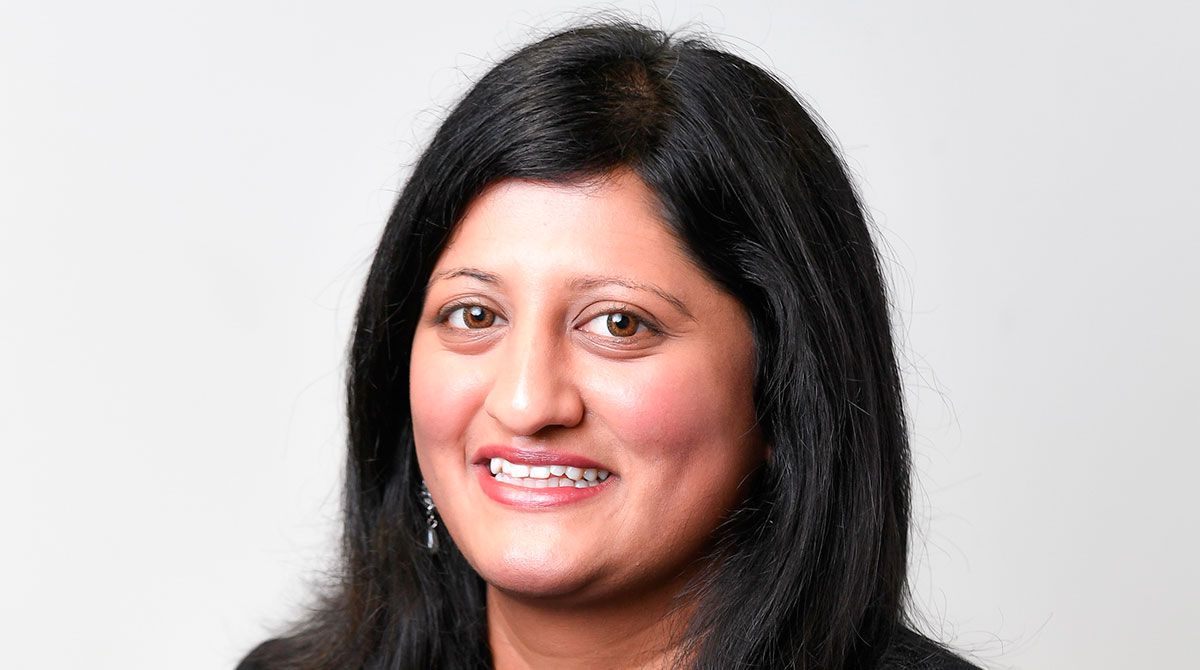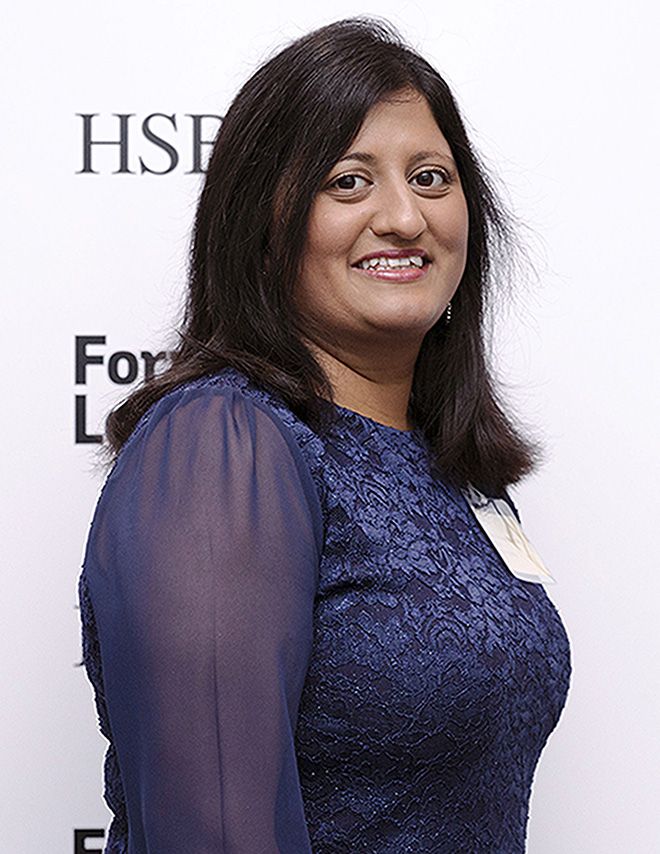Kingston University psychology academic calls for review into mental health treatments following award-winning research into schizophrenia
Posted Thursday 16 November 2017

An award-winning Kingston University psychology expert is urging mental health practitioners and pharmaceutical manufacturers to look at developing specific treatments for individuals with schizophrenia, after her study into the illness was recognised by a leading global psychiatry organisation.
Dr Nora S Vyas, from Kingston University's Faculty of Arts and Social Sciences, scooped the Young Investigator Award at the 13th World Congress of Biological Psychiatry in Copenhagen, Denmark, for her research into how un-medicated adults with schizophrenia perform on tasks which tested their memory and sorting skills. The work, carried out in collaboration with Professor Monte Buchsbaum from the University of California in San Diego, concluded that those without treatment were still able to perform well in a range of tasks. It has been published in the Schizophrenia Research journal.
Dr Vyas hopes her award will continue to shine the spotlight on mental health problems – and emphasised the need for a cultural shift towards more frankness in discussing such illnesses. "I am deeply honoured to win the Young Investigators Award. The findings of the study show that we need to continue to develop alternative treatments and therapies for individuals with schizophrenia, and for that to be recognised is very encouraging."
Schizophrenia is a severe long-term mental health condition, with symptoms including hallucinations, delusions and disorganised thoughts. In her study, Dr Vyas studied the role of dopamine, a neurotransmitter that sends signals between nerve endings in the brain. Individuals with an imbalance in the levels of dopamine are thought to be at greater risk of developing schizophrenia due to the excessive signals in the brain.
Medications most commonly used to treat schizophrenia block the action of dopamine. However, Dr Vyas's study indicated that some individuals with schizophrenia with high levels of dopamine were still capable of outperforming participants who were regarded as healthy - suggesting that medication for the illness needs to be individualized. Newer medications that control dopamine may be needed for these patients to preserve their ability to think rationally.
"Dopamine is crucial for reward and motivates people to function in daily life, and carry out simple-to-complex everyday tasks," said Dr Vyas. "Dopamine-blocking medications used in the treatment of individuals with schizophrenia aim to reduce their symptoms. Some individuals who are more vulnerable may experience adverse effects owing to the side effects of the meditations. In these cases, optimised treatment strategies suited towards individuals may help."
 Dr Vyas was recently Highly Commended in the STEM Leader category at the Forward Ladies Award in the London and the South regional finalDr Vyas hopes the conclusions from the study will encourage psychiatrists, psychologists, and the pharmaceutical industry to explore developing more tailored approaches in the hope to attain the right dose for optimised treatment for adults with schizophrenia. "The findings from our research may be of interest to pharmaceutical industries in developing newer drugs for patients that may regulate rather than fully block dopamine," she said. "Alongside getting the appropriate medication, the dose prescribed needs to be assessed for individuals with schizophrenia by regular monitoring to ensure that the symptoms are targeted effectively and that crucial cognitive functions such as memory, and executive function, are maintained."
Dr Vyas was recently Highly Commended in the STEM Leader category at the Forward Ladies Award in the London and the South regional finalDr Vyas hopes the conclusions from the study will encourage psychiatrists, psychologists, and the pharmaceutical industry to explore developing more tailored approaches in the hope to attain the right dose for optimised treatment for adults with schizophrenia. "The findings from our research may be of interest to pharmaceutical industries in developing newer drugs for patients that may regulate rather than fully block dopamine," she said. "Alongside getting the appropriate medication, the dose prescribed needs to be assessed for individuals with schizophrenia by regular monitoring to ensure that the symptoms are targeted effectively and that crucial cognitive functions such as memory, and executive function, are maintained."
In recent times a number of charities and medical professionals have campaigned to end the stigma surrounding mental health problems - something which is wholeheartedly welcomed by Dr Vyas. Dr Vyas emphasises the need to demystify the taboos associated with mental health illness, as early support and intervention is important to improve psychological well-being. "As a society, it is important that we begin to talk about our mental health in the same way we talk about our physical health," she said. "The more open people are about their feelings, the easier it will be for them to speak up and seek help from loved ones, mental health charity support groups or medical professionals. People should not have to suffer in silence."
Dr Vyas's contributions to the study of psychology continue to generate plaudits from across fields and industries. Following on from the Young Investigator Award, she was recently honoured at the British Asian Achievers Award, where her research saw her honoured with Woman of the Year Award at a glittering ceremony in Central London. "It is great that my work is being noticed, and I hope it continues to generate greater awareness regarding mental health," said Dr Vyas.
Dr Vyas was also highly commended in the STEM (science, technology, engineering and mathematics) Leader category in the London and the South regional final of the Forward Ladies Award.
- You can read Dr Vyas's paper in the Schizophrenia Research journal.
- Find out more about studying psychology at undergraduate level at Kingston University.
- Read more about studying a postgraduate degree in psychology at Kingston University.
Contact us
General enquiries:
Journalists only:
- Communications team
Tel: +44 (0)20 8417 3034
Email us



